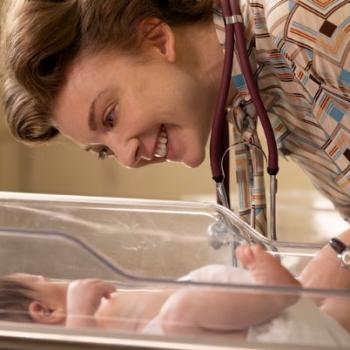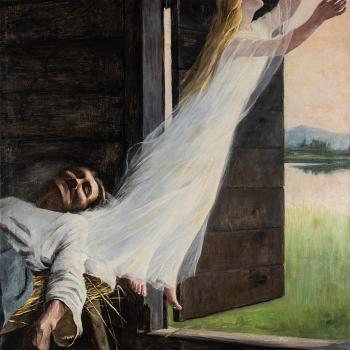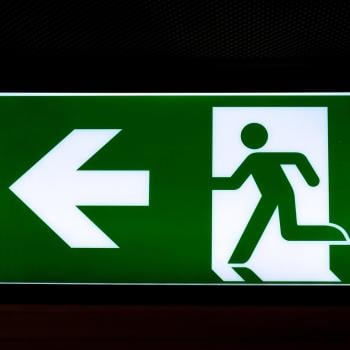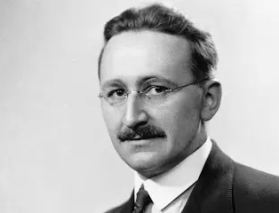Editors' Note: This article is part of the Patheos Public Square on Slow Living. Read other perspectives here.
In the 21st century, many of us feel the pains of a society that is accelerating and fragmenting. Generally speaking, we are working longer weeks, sleeping shorter nights, and finding ourselves less connected with our loved ones and our neighbors around us. A recent Washington Post article summarizes our situation well:
"There is compelling evidence," [Joseph Cortright has said], "that the connective tissue that binds us together is coming apart."
The shared experiences and communal spaces where our lives intersect — even if just for a ride to a work, or a monthly PTA meeting — have grown seemingly more sparse. And all of this isolation means that the wealthy have little idea what the lives of the poor look like, that people who count on private resources shy away from spending on public ones, that misconceptions about groups unlike ourselves are broadly held. … We're receding from the public realm in ways that could undermine communities and the will that arises when people within them know and trust each other.
This fast culture that we experience is not a particularly new phenomenon. Indeed, it has taken shape gradually over the course of the modern era, with the rise of individualism in the early modern era, industrialization in the 18th and 19th centuries, automobility and the emergence of the interstate highway system in the 20th century, and the acceleration of digital technology in the latter half of the 20th and into the 21st century. All of these shifts (and probably others) have intersected to create our present experience of what sociologist George Ritzer has called "The McDonaldization of Society."
When John Pattison and I wrote our book Slow Church, we did so out of the conviction that the Christian tradition had theology and practices with the potential to form Christian communities that could offer a meaningful and compelling alternative to fast culture. As we have been working to promote the book, we have been reminded that other faith traditions (and even people of no particular faith) have practices that help them slow down and reconnect with those closest to them and with the places in which they live. Indeed, there has been an expanding number of Slow movements that have arisen over the last thirty years in the wake of the Slow Food movement: Slow Cities, Slow Art, Slow Reading, Slow Parenting, etc. We are interested in the ways in which faith convictions compel people to want to slow down, or conversely the ways in these slow movements resonate with our faith.
As an interfaith portal, Patheos is an ideal host for a broad conversation on faith and slow living, and I am grateful for the space they have created for this conversation.
What practices help you to slow down keep sane in an accelerating age, connecting you to family, friends, neighbors, place, and land? Or on the flip side, what things have you learned to take a break from, in order to maintain your health and sanity?
6/17/2015 4:00:00 AM




